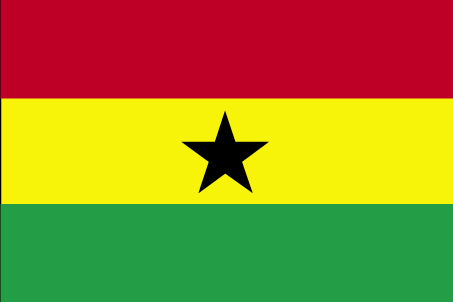ACCRA – The Parliament of Ghana has approved a syndicated receivables-backed trade facility of US$300 million for cocoa purchases by the Ghana Cocoa Board (COCOBOD). The purpose of the medium term facility is to refinance cocoa bills which attract an average interest rate of 29 per cent per annum in order to improve the cash flows, liquidity and viability of the COCOBOD.
The facility, which was approved by a majority voice vote, Wednesday, included a request to the House to grant a waiver of Stamp Duty amounting to US$3 million.
This comes after two days of heated debate between the Majority and Minority sides of Parliament over the medium term loan facility agreement between the COCOBOD and the consortium banks.
The banks are made up of the Bank of Tokyo-Mitsubishi UFJ Limited, Credit Agricole Corporate & Investment Bank, DZ Bank AG Deutsche Zentral-GenossenschaftBank, Natixis, NEDBank Capital, Standard Bank, and Societe General S. A.
A report by the Finance Committee said the government maintained its commitment to paying farmers high remuneration prices, even though cocoa prices remained low during the period between 2012 and 2014.
It said the average Free On Board (FOB) prices of cocoa per ton recorded in the period 2012/13 and 2013/14 during which the cocoa bills were raised were US$2,130 and US$2,300 respectively.
Also, it said the fertilizer and chemicals stock requirements, which were needed to maintain production levels, had to be borne by COCOBOD.
“This resulted in the rollover of the cocoa bills, which is now adversely affecting COCOBOD’s finances,” it said
Earlier the Minority led by Osei Kyei-Mensah-Bonsu, had argued that the terms and conditions of the medium term loan facility were not clear, believing that the country would not get value for money if they should go ahead and approve it.
But the deputy Finance Minister, Ato Forson, who was pushing for the passage of the loan agreement, told members that the lawyers working on the deal were demanding £42,000 but government was still negotiating with them to bring it down.
He also told the House that the loan would attract an annual agent fee of £50,000.
Mr. Forson, though managed to convince the House to approve the loan, just when the Speaker was about to put the question for members to vote, the Minority drew the Speaker’s attention to quorum and demanded a headcount.
The House fell short of two-thirds of the 275 Members needed to form a quorum for any international agreement, hence the suspension of the agreement to Wednesday.
According to the Chairman of the Finance Committee of Parliament, James Klutse Avedzi, who seconded the motion for adoption of the committee’s report and approval of the loan agreement told the House that the Ghana Cocoa Board in collaboration with the Bank of Ghana issued 182 days Bills to finance cocoa purchases in the 2012/2013 and 2013/2014 crop seasons.
However, due to liquidity challenges arising as a result of low revenues from low cocoa prices recorded in 2012/2013 and 2013/2014 crop seasons, the facility have been rolled over on maturity over the period.
He said as a result of high interest payments on the Bills, the Board of Directors of the Ghana Cocoa Board gave approval for COCOBOD to take a medium-term facility for an amount of US$300million to refinance the principal interest of the 182 days Bills which currently amounts to GH₵1.354billion.
The bills, according to Mr. Avedzi, were raised to finance operations of COCOBOD at a time cocoa production increased significantly, demanding more liquidity to finance the purchases.
In this regard, COCOBOD, he said, entered into an agreement with the consortium of Banks to raise an amount of US$300million to refinance the Bills.
According to him, the completion of the transaction of the loan agreement is expected to ease the financial burden on the Ghana Cocoa Board and free more resources for their core operations.
“The waiver therefore, is necessary to ensure that the full value of the facility is available to the Ghana Cocoa Board to enable it refinance the maturing Bills and provide some resources for cocoa purchases and other liabilities”, he added.
In another development, the House approved the budget estimates of some Ministries, Departments and Agencies (MDAs) of the government to finance their activities in the 2016 financial year.
They include the Ministries of Health and Finance, Ghana Revenue Authority (GRA), and the National Development Planning Commission (NDPC).
The Ministry of Health was given GH3.3 billion to carry out its activities for next year. The amount is expected to be spent on health sector delivery, tertiary and specialized services, human resource development and management, health sector regulations, and management and administration.
The Finance Ministry was also allocated GH272.4 million while the NDPC and GRA got GH5 million and GH605 million respectively.


















